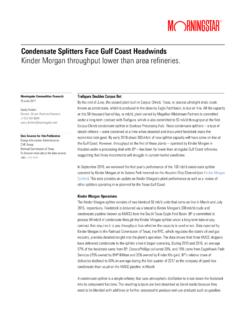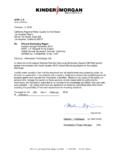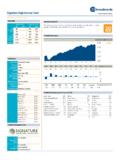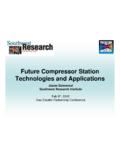Transcription of Report on Industry Use of Substandard Steel 2010-06-28x
1 USE OF Substandard Steel . BY. THE PIPELINE Industry . 2007 TO 2009. Plains Justice June 28, 2010. 310 North 27th Street 100 First Street SW 100 East Main Street Billings, MT 59102 Cedar Rapids, IA 52404 Vermillion, lion, SD 57069. 406-696-8700 319-362-2120 605-659-0298. 605. Fax: 866-484-2373. 2373 Printed on recycled paper SUMMARY. Between 2007 and 2009 a number of pipe mills produced Substandard Steel pipe for pipeline companies. This pipe failed to comply with the American Petroleum Institute Grade 5L X70. standard (API 5L X70 Standard). In response to this discovery of defective pipe, on May 21, 2009, the Pipeline and Hazardous Materials Safety Administration (PHMSA) issued Advisory Bulletin ABD-09-01, entitled Potential Low and Variable Yield and Tensile Strength and Chemical Composition Properties in High Strength Line Pipe (Advisory Bulletin).
2 The Advisory Bulletin described the low strength Steel pipe issue and recommended an Industry response to it in very general terms. To learn more about this problem, a number of groups submitted a Freedom of Information Act Request to PHMSA on September 2, 2009, which requested documents related to PHMSA's investigation of and response to this problem. In response, in March and May of 2010, PHMSA sent 3,710 pages of information, including test results and reports, emails, letters, presentations, and other documents. This Report is intended to summarize the material disclosed by PHMSA, discuss its implications, and identify a number of concerns that may not have been fully addressed by PHMSA and the Industry . The documents provided show that PHMSA investigated a total of seven pipelines, four constructed by Boardwalk Partners, LP (Boardwalk), and three by kinder morgan , Inc.
3 ( kinder morgan ). PHMSA confirmed that five of these pipelines contained significant amounts of defective pipe. Specifically, the documents show that the pipe stretched under pressure, creating expansion anomalies . that indicate use of low-strength Steel . To repair their pipelines, the affected companies removed and replaced hundreds of pipe joints. A number of companies are implicated in producing defective pipe, but it appears that Welspun Corp. Ltd (Welspun), an Indian Steel pipe manufacturer, produced most of it. For example, according to released documents, Welspun was responsible for 88% of pipe with expansion anomalies provided to Boardwalk. This being said, other pipe mills also provided defective pipe, some in significant amounts. Globalization of Steel pipe supply chains has made quality control more challenging and increased the need for greater domestic measures to ensure discovery of defective pipe.
4 Even though the documents released show that certain pipe mills provided most of the defective pipe, none of the documents describe any systematic approach to defining the scope of this problem or identify the final disposition of pipe provided by these mills during this time period. Thus, it is not clear that PHMSA has tracked down all of the potentially defective pipe joints and confirmed that they have been tested and, where necessary, replaced. Accordingly, this Report provides recommended actions, accomplishment of which would assure the public that PHMSA has responded fully to the threat created by low-strength Steel . New natural gas and hazardous liquid pipelines are larger, higher pressure, and more dangerous than earlier generations of pipelines. It is critical that PHMSA fully investigate the root cause of the Industry 's failure to comply with pipe Steel standards so that appropriate solutions are implemented.
5 It is also critical that large high-pressure pipelines be regulated more stringently than smaller lower pressure pipelines, including measures that increase certainty of the Industry 's compliance with written standards. Public confidence in pipeline safety will be increased only through greater regulatory transparency, increased opportunities for public participation, and a demonstration that PHMSA will respond aggressively to the increasing need to update and improve pipeline safety standards. Industry USE OF Substandard Steel PIPE. Between the third quarter of 2007 and the fourth quarter of 2009, kinder morgan Inc. and Boardwalk Pipeline Partners, , constructed a number of new large, high-pressure natural gas pipelines. The approximate construction schedules for these pipelines are shown below. Defective Pipe Steel Investigation Period 3Q 4Q 1Q 2Q 3Q 4Q 1Q 2Q 3Q 4Q.
6 Pipeline Construction Schedules 07 07 08 08 08 08 09 09 09 09. kinder morgan Louisiana Pipeline kinder morgan Midcontinent Express Pipeline kinder morgan Rockies East Pipeline Boardwalk East Texas Pipeline Boardwalk Gulf Crossing/MS Loop Pipeline Boardwalk Southeast Pipeline Boardwalk Fayetteville/Greenville Pipelines Upon completion, each of these pipelines was hydrotested, meaning that each new pipeline was filled with water and pressurized to find out if it had any leaks. Five of these pipelines failed their hydrotests, including the Louisiana Pipeline, the East Texas Pipeline, the Mississippi Loop portion of the Gulf Crossing Pipeline, and the Fayetteville Pipeline. As described below, these tests triggered an investigation by PHMSA, which ultimately determined that these companies had incorporated significant amounts of defective Steel pipe into their pipelines.
7 kinder morgan Investigation PHMSA investigated three kinder morgan pipelines: kinder morgan Louisiana Pipeline (Louisiana Pipeline) 137 mile 42 inch diameter natural gas pipeline constructed between January 2008 and December 2008; 1. Midcontinent Express Pipeline approximately 500 mile long natural gas pipeline with 40 miles of 30 inch pipe, 197 miles of 36 inch pipe, and 257 miles of 42 inch pipe, constructed between September 2008 and August 2009;2 and Rockies Express Pipeline East Project (REX East) a 639 mile 42 inch diameter natural gas pipeline constructed between June 2008 and November Investigation of each of these pipelines is discussed below. 1. kinder morgan , Presentation, kinder morgan Louisiana Pipeline (KMLP) Pipe Issues, December 15, 2008. (KMLP December 15 Presentation) at 2; kinder morgan 10-K, February 23, 2009. Given the danger of natural gas leaks and ruptures, initial pressure tests are conducted with water rather than natural gas.
8 2. Dept. of Transportation, Special Permit for the Midcontinent Express Pipeline, April 4, 2007; kinder morgan 10-K, February 23, 2009. 3. kinder morgan 10-K, February 23, 2009. 2. kinder morgan Louisiana Pipeline Sometime in late 2008 the Louisiana Pipeline failed a This failure triggered PHMSA's investigation. Little is known about this hydrotest failure because PHMSA did not release documentation disclosing the location, time, or circumstances of this failure. In its initial investigation of what caused this failure, kinder morgan determined that some of the pipe joints in the Louisiana Pipeline had expanded beyond Expansion was of concern because it indicated that the Steel pipe might not have been strong enough to withstand the very high pressures under which this pipeline would operate. Accordingly, kinder morgan conducted a high resolution caliper survey of the entire pipeline to identify all expanded Substandard pipe PHMSA.
9 Did not supply the data collected by these high resolution caliper surveys in response to the FOIA. Request, nor did it identify the pipe and Steel mills that supplied the expanded pipe joints. Once kinder morgan identified specific pipe joints that had expanded, it tested 30 of these joints for chemical composition and It also tested 30 random pipe joints that had not been subject to pressures sufficient to expand It found that 43% of the samples from expanded pipe failed to meet strength specifications contained in the API 5L X70 Standard. The data table containing these results describes the pipe as NPS 42 x WT API Grade X70 Welspun LMLP Linepipe. 9 It also found that 13% of the samples from non-expanded Welspun pipe did not meet kinder morgan concluded that [t]he variability in the pipe yield properties is a result of deviation from plate controlled rolling parameters, 11 meaning that the Steel had been formed improperly.
10 PHMSA provided us with no data or information supporting this conclusion. To ensure pipeline integrity, kinder morgan ultimately removed approximately 7,100 feet ( ) of installed pipe due to diameter variability. 12 kinder morgan also requested that Welspun investigate this matter and recertify Substandard Steel pipe joints based on its Welspun recertified an undisclosed number of pipe joints as API 5L X56, X60, and X65 pipe, meaning that it downgraded different segments of pipe from the API 5L X70 Standard to lower Even though PHMSA did not provide data beyond that contained in generalized kinder morgan presentations, it is clear that a substantial number of pipe joints expanded to a degree that caused kinder morgan and/or PHMSA to remove and replace these joints. Also, Welspun is the only one of kinder morgan 's pipe suppliers implicated by the released documents.









